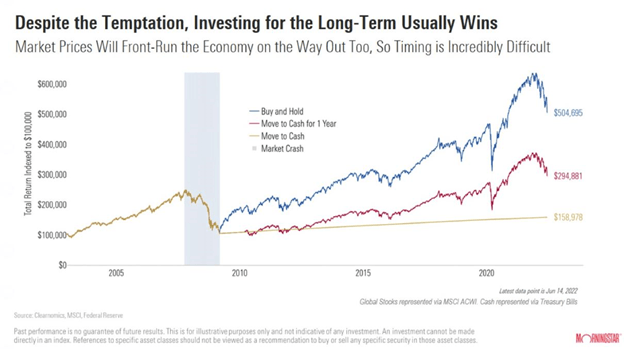By Keith Fevurly
•
September 24, 2025
On July 4, 2025, President Trump signed the One Big Beautiful Bill Act (OBBBA) into law. Likely, the most important provision of OBBBA was the “permanent” extension of the lower income tax brackets from the 2017 Tax Cut and Job Act with no expiration date. However, be aware that the term “permanent” in the political world of Washington, DC, simply means that the current tax brackets only exist until a later Congress changes them and obtains the approval of the President then-in-office. Here are the current (2025) “permanent” income tax rates for married filing jointly (and single) taxpayers: • 10% on income up to $23,850 (single: $11,925) • 12% on income from $23,851 to $96,950 (single: $11,926-$48,475) • 22% on income from $96,951 to $206,700 (single: $48,476-$103,350) • 24% on income from $206,701 to $394,600 (single: $103,351-$197,300) • 32% on income from $394,601 to $501,050 (single: $197,301-$250,525) • 35% on income from $501,051 to $751,600 (single: $250,526-$626,350) • 37% on income over $751,600 (single: over $626,350) Moreover, the tax brackets continue to be adjusted for inflation each calendar year. In addition, the higher standard deductions from the 2017 Act were made “permanent” and increased further for the year 2025: • For single taxpayers: $15,750 • For married filing jointly: $31,500 • For seniors (individuals age 65 and over), a new senior citizen deduction of $6,000 for those seniors with Social Security income was enacted ($12,000 for married filing jointly taxpayers). However, the full deduction is available only for single filers with an adjusted gross income (AGI) of $75,000 or less, or married filing jointly couples with an AGI of $150,000 or less. The deduction is completely phased out for single filers with an AGI above $175,000 and married filing jointly taxpayers with an AGI above $250,000. Finally, the provision applies only for taxable years 2025-2028. Other notable “permanent” tax provisions implemented by OBBBA are: • The estate and gift tax exemption equivalent amount is increased to $15 million per person (effective in 2026) and is indexed for inflation annually (Note: the 2025 exemption was $13,990,000 per person.) • The 20% small business (Qualified Business Income or QBI) deduction first enacted in the 2017 Act. • 100% bonus depreciation deduction for qualified tangible property acquired by a business after January 20, 2025 is reinstated. • The child tax credit is increased from $2,000 to $2,200 for each qualifying child under the age of 17. The credit phases out for single taxpayers with AGI of $200,000 and $400,000 for married filing jointly taxpayers. • The existing limit allowing an itemized deduction of up to 60% of AGI for cash gifts to qualified charities is extended with no expiration date. However, beginning in 2026, the percentage charitable deduction for itemizers is restricted to no more than 0.5% of the taxpayer’s AGI. • Starting in 2026, a new charitable deduction for non-itemizers is introduced into the law. These taxpayers can now claim a deduction for charitable contributions of cash capped at $1,000 for single taxpayers and $2,000 for married filing jointly taxpayers. A series of temporary tax provisions effective only for tax years 2025-2028, unless otherwise noted, are also implemented by the OBBBA legislation. Here is a summary: • The State and Local Tax (SALT) itemized deduction is increased from $10,000 to $40,000 from 2025-2029. The deduction increases 1% per year from 2026-2029 and is phased out with income starting at $250,000 for single taxpayers and $500,000 for married filing jointly. The deduction is phased out completely at $300,000 single filing status and $600,000 married filing jointly. • Effective for auto loans starting after 12/21/2024, interest is deductible for cars, vans, and trucks weighing less than 14,000 pounds whose final assembly occurred in the United States. • A deduction for overtime pay capped at $12,500 for single filers and $25,000 for married filing jointly. The deduction is phased out for individuals with AGI exceeding $150,000 for single filers and $300,000 for joint filers. The deduction applies to federal income tax, reducing the overtime wages included in the individual’s taxable income. Finally, there are several new tax provisions included in the OBBBA legislation. Among these, are: • No federal income tax on tip income capped at $25,000 per year. However, the tip income is a non-itemized deduction and not an exclusion from taxable income. The deduction is subject to income limitations: for single filers, it begins to phase out at $150,000 of AGI and $300,000 for married filing jointly taxpayers. For self-employed individuals, the deduction is limited to the business’ net income (excluding the deduction itself). • For children born between 2025-2028, parents can open special “Baby Savings Accounts” or “Trump Accounts”. These accounts are similar to traditional IRAs (but with special rules) for dependent children under the age of 18 where parents or guardians can contribute up to $5,000 annually, and employers can contribute up to $2,500 annually. Contributions are made with after-tax dollars, but investment growth is tax deferred. Moreover, from 2025-2028, a one-time $1,000 federal government contribution may be made for eligible children. Distributions from such accounts are prohibited until January 1st of the year the child/beneficiary attains age 18, at which point the account is treated like a traditional IRA. • No federal income tax on overtime pay as discussed above under the section on temporary tax provisions. This provision is particularly important for service workers, such as restaurant wait staff and delivery drivers. If you have any questions about any of these provisions, please contact the Investment team at Integra Financial, Inc. While we are prohibited from giving specific tax advice, we can discuss how tax law and tax changes impact your future personal financial planning.


